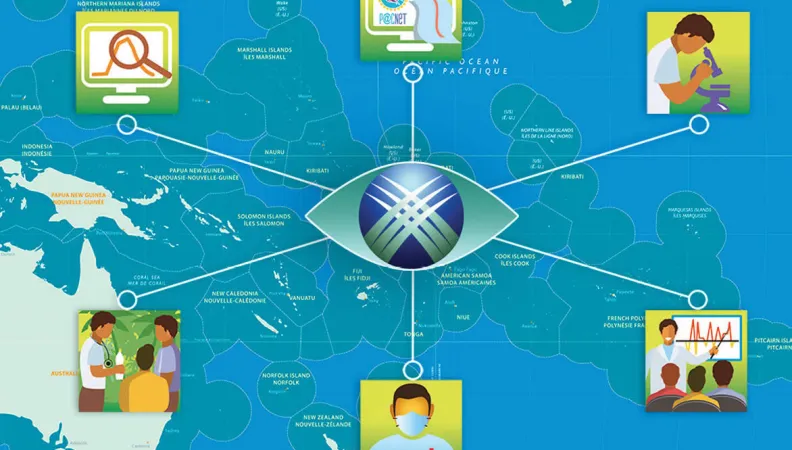Share the page
Enhancing Health Security in the Pacific
Project


-
Project start date
-
Status
Ongoing
-
Project duration
-
3 ans
-
AFD financing amount
-
3000000 €
-
Country and region
-
Location
-
New Caledonia
-
Type of financing
-
Beneficiaries
-
SPC
-
Type of beneficiary
-
State
AFD will support the Pacific Public Health Surveillance Network (PPHSN) for a three-year period. This network, coordinated by the Pacific Community (SPC), complements and supports the national policies of its 22 Member States by offering a range of integrated public health surveillance services for the region.
Context
The Pacific region includes 22 island countries and territories (PICTs) and covers roughly 30 million km2. In the area of health, this region faces a twofold challenge: the prevalence of non-communicable diseases (cardiovascular diseases, diabetes, cancer) caused by changing lifestyles, and the development of epidemic diseases (H1N1, Zika, Chikungunya), accelerated by climate change.
The small size of these territories and their isolation limits the effectiveness of solutions provided by national health systems. A coordinated regional response is therefore necessary.
With this aim in view, the Pacific Community, the primary scientific and technical organization in the Pacific region since 1947, leads the Pacific Public Health Surveillance Network (PPHSN).
Description
The PPHSN is a network of services based on voluntary participation that brings together the 22 health departments and services of the PICTs. This platform also brings together various organizations such as Institut Pasteur in New Caledonia and Institut Louis Malardé in French Polynesia.
The project aims to support the network and increase its capacity for intervention through the following:
- training 80 additional professionals responsible for health surveillance;
- implementing a mentoring program to strengthen skills and the network of laboratories;
- establishing a surveillance and vector control mechanism for the region;
- integrating climate and environmental factors in the management of health surveillance for the population.
Impacts
In addition to the anticipated impacts in terms of strengthening surveillance mechanisms and ultimately improving the health of the population, the project promotes regional cooperation on new issues, including surveillance and vector control, antibiotic resistance, and the monitoring of the health impacts of climate change.


